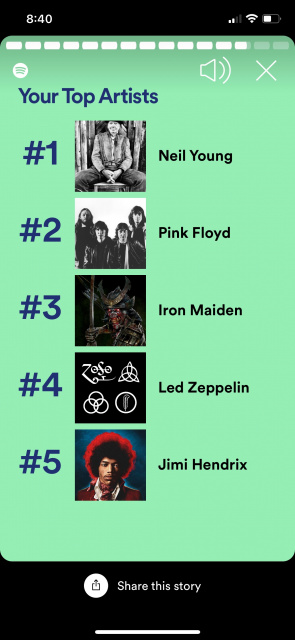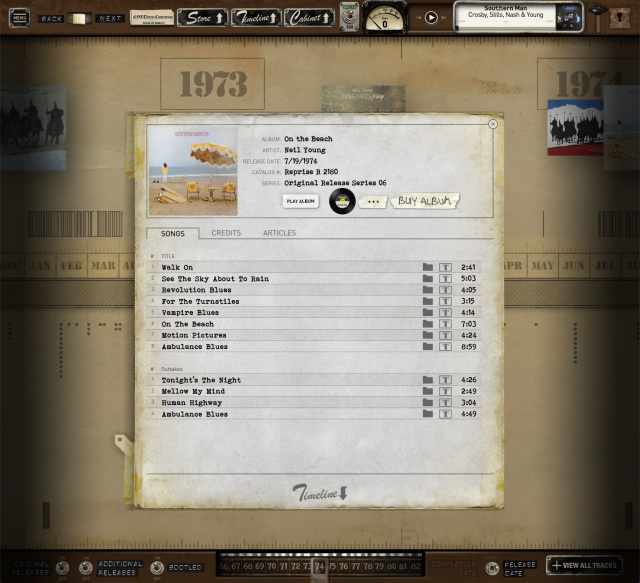This episode of Search Engine is a great conversation with Ezra Klein about being aware of where your attention is going.
podcasts
"As a result, it will be increasingly difficult for any but the most popular podcasts to claim a sizable chunk of the ad dollars available. Creators will therefore need to maximize ad revenue as much as possible, and limiting their potential audience through an exclusive distribution model will be increasingly untenable."GOOD. I am so happy we still have a distributed, open podcast distribution system based on RSS.
Listeners of You're Wrong About call in with their abortion stories. As with so many of this show’s episodes it’s the context I wish the media was regularly providing for important stories.
"They discussed how various platforms, from Twitter to TikTok and Telegram, are moderating the content coming out of Russia and Ukraine right now; the costs and benefits of Western companies pulling operations out of Russia during a period of increasing crackdown; and how the events of the last few weeks might shape our thinking about the nature and power of information operations."Good discussion of the state of global social media moderation during an information war.
"Here is what I am not allowed to do: write things that are known to be false, with or without the intention to mislead. There’s an ethical reason for this, and a practical one. The ethical reason is that it’s not okay to intentionally deceive people — especially when the consequences of the deception are potentially deadly, as they are with vaccine misinformation. The practical reason is that it introduces liabilities for the publisher."It's almost like new media companies like Spotify think they are inventing something new (it's not journalism!) so there's no accountability.
Spotify, Wrapped
I would like to announce that I have ended my business relationship with Spotify. That means I'm no longer paying Spotify $15/month for a family account. With Neil Young off the platform, they're literally removing the music I listen to most. Here's my 2021 Spotify Wrapped top artists list. (And keep the judgy looks to a minimum—we all got through 2021 our own way.)

I agree with Neil Young (and Joni Mitchell and Nils Lofgren and Brené Brown) that it's not good to support a company that refuses to remove public health disinformation.
Not everyone in my family plays their carefully curated Neil Young playlist 24/7 so they weren't as eager to jump ship. We all agreed that moving to a new service was good, but we couldn't agree which service to move to. We rarely sit down and put together our technical requirements for a digital service as a family. So we assembed our RFP and we're waiting on the contracts from Procurement.
In the end we found a music service from a company with no problematic stances: Amazon Music. I'm kidding, of course. Chances are very good that I'm going to want to leave this service in the near future and maybe that will be the environment we're in until there's real competition. Neil Young recommends Amazon and he has a deal that will give new users four months free.
The biggest barrier to moving services was moving our playlists. I found an app for that that works well: Free Your Music. It costs $15, but I look at that like a moving services tax. Hopefully that's a one-time fee. I had 30+ playlists to move over and I've only found a few mismatches here and there that were easy to fix.
If anyone else is a hardcore Neil Young fan it's worth checking out his Neil Young Archives website. (Thanks for the gift subscription, Dad!) The central music services are kind of like fancy spreadsheets to me. They make navigating songs easy but treat all artists the same. Looking through the Neil Young Archives is more like rifling through a dusty trunk where there's all kinds of bizarre things to find. It looks like this:

Truly awful if you're trying to get something done efficiently. Awesome if you want to have a feeling of discovery. We have a lot of "efficient" experiences online and I think we could use more planned weirdness.
Anyway, Spotify is a good, efficient music service. They must view podcasts as the future of their business if they're willing to both be bad citizens and degrade their music offering to keep those listeners.

I agree with Neil Young (and Joni Mitchell and Nils Lofgren and Brené Brown) that it's not good to support a company that refuses to remove public health disinformation.
Not everyone in my family plays their carefully curated Neil Young playlist 24/7 so they weren't as eager to jump ship. We all agreed that moving to a new service was good, but we couldn't agree which service to move to. We rarely sit down and put together our technical requirements for a digital service as a family. So we assembed our RFP and we're waiting on the contracts from Procurement.
In the end we found a music service from a company with no problematic stances: Amazon Music. I'm kidding, of course. Chances are very good that I'm going to want to leave this service in the near future and maybe that will be the environment we're in until there's real competition. Neil Young recommends Amazon and he has a deal that will give new users four months free.
The biggest barrier to moving services was moving our playlists. I found an app for that that works well: Free Your Music. It costs $15, but I look at that like a moving services tax. Hopefully that's a one-time fee. I had 30+ playlists to move over and I've only found a few mismatches here and there that were easy to fix.
If anyone else is a hardcore Neil Young fan it's worth checking out his Neil Young Archives website. (Thanks for the gift subscription, Dad!) The central music services are kind of like fancy spreadsheets to me. They make navigating songs easy but treat all artists the same. Looking through the Neil Young Archives is more like rifling through a dusty trunk where there's all kinds of bizarre things to find. It looks like this:

Truly awful if you're trying to get something done efficiently. Awesome if you want to have a feeling of discovery. We have a lot of "efficient" experiences online and I think we could use more planned weirdness.
Anyway, Spotify is a good, efficient music service. They must view podcasts as the future of their business if they're willing to both be bad citizens and degrade their music offering to keep those listeners.
“By allowing the propagation of false and societally harmful assertions, Spotify is enabling its hosted media to damage public trust in scientific research and sow doubt in the credibility of data-driven guidance offered by medical professionals,” the letter said.Starting to feel like there are no good media companies. Once you get to a certain size you have to get with the misinformation program to make enough money to sustain things.
We're talking about a guy who received one complaint from a student who came to his office to talk to him, and then he himself voluntarily canceled the course. He took his ball and went home. And yet we're supposed to be like, “All of these kids today, they're so over-sensitive”.Fantastic conversation that connects 90s political correctness discourse with cancel culture discourse. They show how flimsy moral panic stories were fabricated, used as evidence of liberal overreach, and repeated ad nauseam.
"With the backing of Stitcher and SiriusXM, Mars said he hoped to continue producing ambitious work — without the strain of handling the financing himself."Happy for Roman Mars but unhappy about the state of indie podcasting. Blarg.
Great podcast episode about those mystery Chinese seeds that people were getting in the mail a while back. It's a good story that touches on our collective paranoid psychology, Amazon scams, government agencies, international shipping, and the weight of seeds.
When you hear who Q of the conspiracy theory really is it kind of kills the mystique and makes the whole thing seem silly. PJ Vogt does some nice work here going to the origins of the mass delusion in the darker corners of the Internet.
"In 1831, Alexis de Tocqueville toured the country and was amazed by the postal system. Even in the most isolated parts of the American frontier he found people who had read newspapers and could talk about politics in America and Europe."Great episode of 99pi about the origins of the postal service and how it promoted infrastructure and literacy.